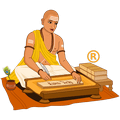























Sunrise07:52
Sunset17:56
MoonriseNo Moonrise
Moonset18:16
Shaka Samvat-3310 Vibhava
Vikram Samvat-3175 Vikrama
Gujarati Samvat-3176 Pramathi
Amanta MonthChaitra (Adhik)
Purnimanta MonthChaitra (Adhik)
WeekdayMangalawara
PakshaKrishna Paksha
TithiAmavasya upto 12:48
YogaVaidhriti upto 14:27
KaranaNagava upto 12:48
KaranaKinstughna upto 22:58
Pravishte/Gate31
SunsignMeena upto 02:32, Jan 31
Rahu Kalam15:25 to 16:41
Gulikai Kalam12:54 to 14:10
Yamaganda10:23 to 11:39
Abhijit12:34 to 13:14
Dur Muhurtam09:53 to 10:33
Dur Muhurtam23:30 to 00:26, Jan 31
Amrit Kalam11:34 to 12:58
Amrit Kalam04:31, Jan 31 to 05:56, Jan 31
Varjyam07:21, Jan 31 to 08:46, Jan 31
Notes: All timings are represented in 24-hour notation in local time of Columbus, United States with DST adjustment (if applicable).
Hours which are past midnight are suffixed with next day date. In Panchang day starts and ends with sunrise.


 Kumbha 27:23+
Kumbha 27:23+ Shatabhisha 11:40
Shatabhisha 11:40

 Mesha
Mesha Ashwini 24:15+
Ashwini 24:15+

 Mesha 27:54+
Mesha 27:54+ Bharani 22:18
Bharani 22:18

 Vrishabha
Vrishabha Krittika 20:59
Krittika 20:59

 Vrishabha
Vrishabha Rohini 20:22
Rohini 20:22

 Vrishabha 08:20
Vrishabha 08:20 Mrigashira 20:29
Mrigashira 20:29

 Mithuna
Mithuna Ardra 21:18
Ardra 21:18

 Mithuna 16:19
Mithuna 16:19 Punarvasu 22:43
Punarvasu 22:43

 Karka
Karka Pushya 24:40+
Pushya 24:40+

 Simha
Simha P Phalguni
P Phalguni

 Simha 15:19
Simha 15:19 P Phalguni 08:34
P Phalguni 08:34

 Tula
Tula Chitra 17:35
Chitra 17:35

 Tula
Tula Swati 20:25
Swati 20:25

 Vrishchika
Vrishchika Anuradha 25:09+
Anuradha 25:09+

 Vrishchika 26:47+
Vrishchika 26:47+ Jyeshtha 26:47+
Jyeshtha 26:47+

 Dhanu
Dhanu Mula 27:47+
Mula 27:47+

 Dhanu
Dhanu P Ashadha 28:04+
P Ashadha 28:04+

 Dhanu 10:01
Dhanu 10:01 U Ashadha 27:36+
U Ashadha 27:36+

 Makara
Makara Shravana 26:25+
Shravana 26:25+

 Kumbha
Kumbha Shatabhisha 22:15
Shatabhisha 22:15

 Mesha
Mesha Ashwini 10:53
Ashwini 10:53

 Vrishabha
Vrishabha Rohini 29:07+
Rohini 29:07+In Hindu Calendar, the day starts with local sunrise and ends with next day local sunrise. As sunrise time is different for all cities, Hindu Calendar made for one city is not valid for any other city. Hence it is important to use location based Hindu Calendar, like this website. Further, each Hindu day consists of five elements, which are called angas. These five elements are -
In Hindu Calendar, all five elements together are called Panchang. (In Sanskrit: Panchang = Pancha (five) + Ang (part)). Hence Hindu Calendar which shows all five elements for each day is called Panchang. In South India Panchang is known as Panchangam.
When Hindu Calendar includes Muslims, Sikh, Christian, Buddhist and Jain festivals, including national holidays, it is called as Indian Calendar.